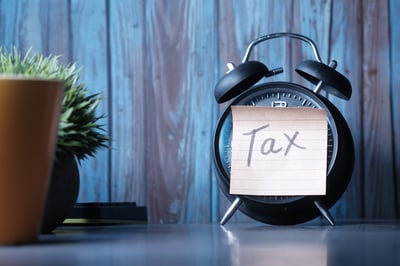How to reduce taxes and tariffs when importing goods repaired across the border
Some people experience unexpected fees when importing repaired goods across the Canadian border.
Depending on the repairs made and the type of goods shipped, you might have to pay taxes and tariffs based on the full value of the repaired product, not just the repair or alteration costs. Transporting repaired goods, vehicles, and parts into Canada involves many regulations that individuals and companies must follow, including potentially paying customs duties or taxes. To avoid unexpected costs when importing repaired goods, it's essential to understand the rules and available exemptions.
Taxes and duties on cross-border repairs
The Canada Border Services Agency (CBSA) website indicates that in certain instances, goods returning to Canada after being repaired abroad will incur customs duties and tariffs based on the full value of the repaired or altered goods. GST/HST also applies to the value of either the repairs or the full value of the product, depending on the circumstances of the work performed.
Depending on the goods imported and the repairs or alterations performed, the CBSA might determine that the product is no longer deemed Canadian-made if modifications and improvements enhance its value. Essentially, the CBSA may treat the repaired or altered item similarly to a brand-new product being shipped across the border. Furthermore, it's important to note that certain work, such as alterations, may affect a given product's free trade agreement eligibility.
For instance, if you send a new truck chassis purchased in Canada to the U.S. to be altered and further manufactured into a cement mixer, duties and GST would be applicable based on the full value of the good when it returns. The cost of transportation from Canada to the place where the work was performed must also be included in the value declared when determining applicable duties and taxes. Since the good - in this case, the chassis - has changed its essential character through alterations abroad, the tariff also changes.
Many types of repaired or altered goods are subject to tariffs and taxes for importation, but exemptions exist for certain products and situations, helping importers avoid extra costs.
What types of imported repaired goods are non-taxable?
Schedule VII of the Excise Tax Act lists goods and scenarios that qualify for non-taxable importation. Some non-taxable products include:
- Medical devices and assistive aids, such as heart monitors, artificial eyes, hearing aids, and wheelchair ramps.
- Prescription medicines and biologicals, including prescribed pharmaceuticals and items used in assisted human reproduction.
- N95 face masks, feminine hygiene products, face shields, and respirators.
- Basic food and beverage supplies, excluding carbonated drinks, alcoholic spirits, candies, and other food products specified by the Federal government.
- Fishing and agriculture supplies, including feed, seeds, plants, and animals involved in human food production.
- Goods imported for donation to a charity or a public institution
- Repairs performed to fulfill warranties.
Not all of these categories include repairable goods, but it's worthwhile to know about the types of products and types of work that qualify. Free trade agreements with other countries and trade blocs can also influence the taxes and duties imposed on repaired goods. A little research might reveal that your imports could qualify for reduced taxes and duties.
Import taxes on vehicle repairs done outside Canada
The Customs Act states that repairs done on vehicles outside Canada must be reported upon the vehicle's return, partly to ascertain the relevant taxes and duties. Nevertheless, the Customs Tariff Act has provisions, such as allowances for emergency repairs conducted outside Canada, that can mitigate or nullify these charges.
The guidelines accounting for highway carrier vehicle repairs include scenarios that offer reductions in some customs duties, especially for repairs performed in free-trade partner nations. Carriers can opt to report these types individually or apply at the nearest CBSA office for quarterly reporting.
Additional scenarios for reduced taxes and tariffs
The CBSA publishes outlines of regulations for temporary importation under that category of D8 memos. Relevant examples of memos that allow for reduced tariffs and taxes include:
Memorandum D8-2-1: Conditions for partial relief of taxes and duties under the Canadian Goods Abroad Program (CGAP).
Memorandum D8-2-4: Emergency repairs that qualify under CGAP regulations.
Memorandum D8-2-5: Conditions for eliminating taxes and tariffs for servicing foreign aircraft.
Memorandum D8-2-26: Goods that may return to Canada duty-free after export to certain free trade partners for alterations or repairs.
Memorandum D8-2-27: Canadian goods originating in Canada that are temporarily exported and returned under tariff item numbers 9813.00.00 or 9814.00.00.
Do your imported goods qualify for reduced taxes and tariffs?
The Customs Act and the Excise Tax Act are long and complicated publications that determine regulations for all products and import scenarios. Even experienced importers and consumers may have difficulty determining whether their goods qualify for reduced taxes and tariffs.
With more than a half-century of experience, we have helped importers/exporters thrive through some of the most complicated logistics scenarios. Connect with us to simplify your challenges and control costs.

